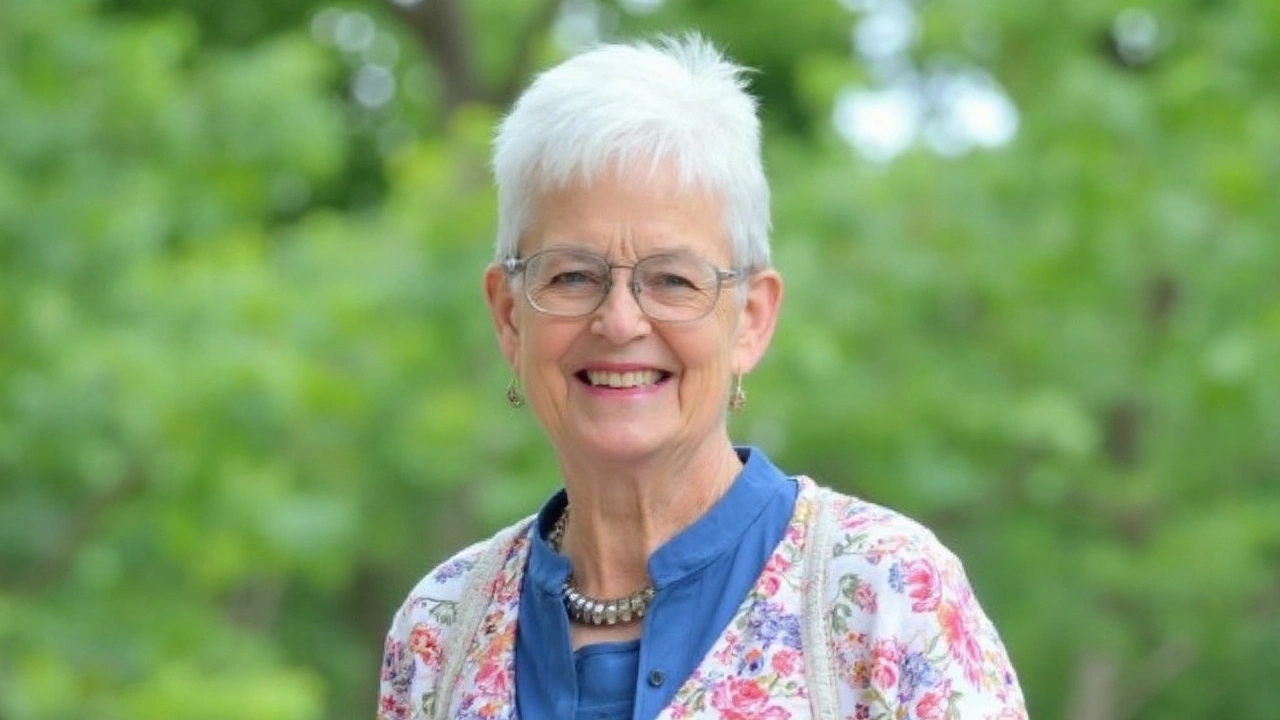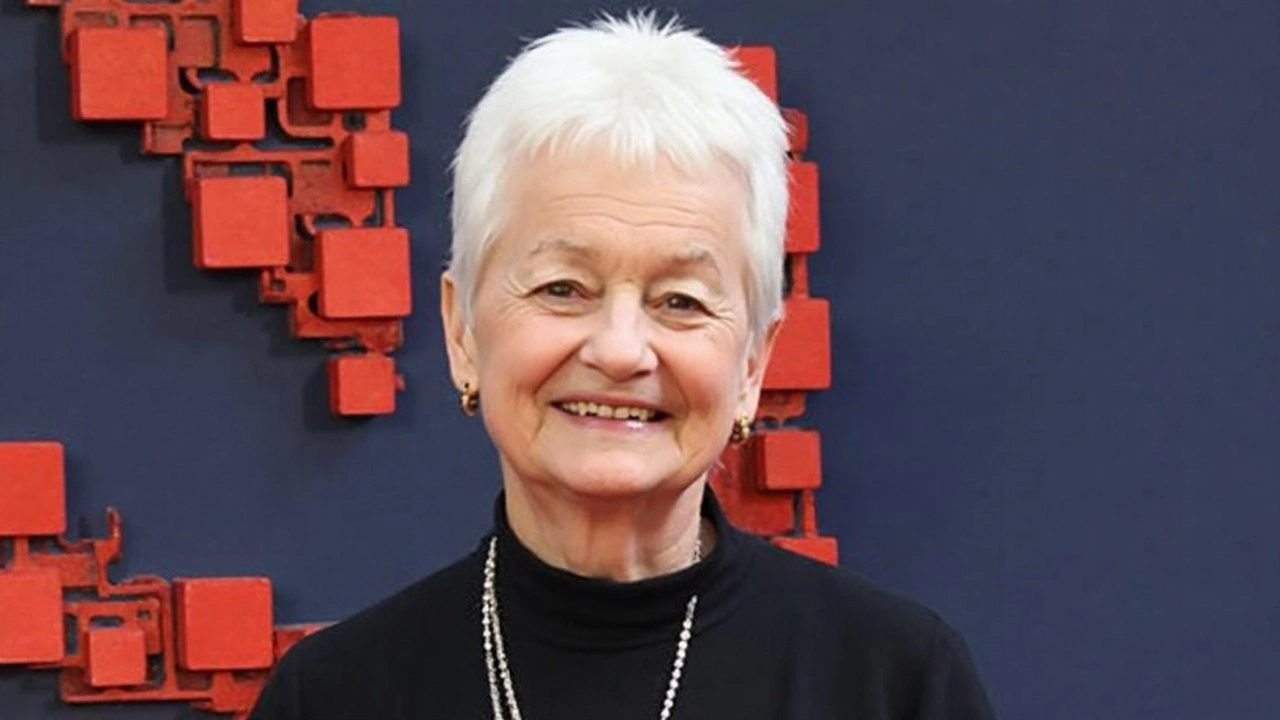Jacqueline Wilson's elevation crowns a career shaped by real-life stories
Jacqueline Wilson has been created a Dame Grand Cross of the Order of the British Empire in the 2025 New Year Honours, a rare distinction that marks one of the highest civilian accolades in the UK. She is among more than 1,200 people recognised on King Charles III’s list this year, which spans public service, science, sport, culture, and community work, and includes several prominent LGBTQ+ figures.
Wilson’s work has been a constant presence in British childhoods for decades. She writes about messy, complicated lives—kids in care, families under pressure, friendships that wobble and then hold. The Story of Tracy Beaker made her a household name and later jumped to TV, but that was only the start. Double Act, Hetty Feather, and the Girls series brought the same frank voice to different corners of growing up, often giving space to children who don’t see themselves in glossy versions of family life.
Her latest move shows she’s not done reinventing herself. In 2024, Wilson published Think Again, her first adult novel, revisiting the world of Girls in Love from a grown-up vantage point. The shift fits her wider approach: she taps the same curiosity and empathy, then tests it against life stages that rarely get the same honest treatment.
Wilson also changed the conversation around who gets to write children’s books—and who those books are for. She came out publicly in 2020 at age 74, saying she had never felt the need to hide her life and that people around her understood she and her partner were a couple. Her visibility landed at a time when schools, libraries, and families are still arguing over what stories belong in the hands of young readers. Her stance—tell the truth, respectfully and without fear—has become part of her legacy.
The scale of the honour recognises that legacy. A Dame Grand Cross (GBE) is the top rank within the Order of the British Empire, above Knight or Dame Commander. The title is reserved for people whose work has had a sustained national or international impact. In Wilson’s case, it nods to more than sales or TV adaptations; it’s about giving young readers language for feelings and situations adults often dodge.
Her public work goes beyond the page. Wilson is a Patron of Momentum, which supports families of children with cancer in Surrey and Greater London, and of the East Sussex Foster Care Association. She also serves as an Ambassador for Battersea Dogs and Cats Home. The pattern is clear: advocacy for children and care, and a soft spot for the overlooked—human or otherwise. Years earlier, as Children’s Laureate (2005–2007), she pushed for reading to be a daily habit, not a school chore.
The honours list itself says a lot about where Britain’s cultural energy is right now. Alongside Wilson, actor and author Stephen Fry receives a knighthood, cited for his work on mental-health awareness. Fry has spent years using his platform to make difficult subjects feel speakable, from depression and bipolar disorder to stigma and support. His campaigning, including long service with mental-health charities, moved the issue from personal confession to public conversation—exactly the kind of change honours committees tend to notice.

What the honours signal about culture, mental health, and public service
Literature is strongly represented this year. Nobel laureate Kazuo Ishiguro becomes a member of the Order of the Companions of Honour, a selective award limited to a small number of living members and reserved for sustained, outstanding achievement. Poet and novelist Alan Hollinghurst, whose work has mapped queer life with elegance and bite, receives an MBE, an award often given for major contributions to the arts and public life over time.
The mix—Wilson, Fry, Ishiguro, Hollinghurst—lands with a clear message: stories matter, whether you tell them for children finding their footing or adults trying to make sense of themselves. And in bringing mental health and LGBTQ+ experience into the everyday, these honourees have moved things beyond representation to real change. Classrooms, book clubs, and living rooms now have shared language for topics that, not long ago, stayed quiet.
This is how the honours system works in practice. Nominations come in from the public and from government departments. Independent committees review the cases, weighing impact over glitz. The final list goes to the Prime Minister and then to the King for approval. The aim is balance—by region, by sector, and by level of recognition—so community volunteers sit alongside world-famous names. Officials say the point is the same either way: service that makes life better for others.
That ethos runs through this list. Government sources framed this year’s choices as a celebration of people who show up day after day for their communities. The sentiment echoes a push across public life to value not just headline achievements but patient, often invisible work—coaches, carers, campaigners, clinicians, teachers—without which the big cultural moments wouldn’t exist.
Wilson’s honour intersects with another shift: a reassessment of what children’s literature can do. Twenty years ago, books about kids in care or parents in crisis were filed as “issue-led” and sometimes sidelined. Now they’re core stock in school libraries, used by teachers to open difficult conversations. In that sense, Wilson’s elevation isn’t just about a single writer’s career arc; it’s about how the country now judges the cultural value of telling hard truths to young readers.
Fry’s knighthood sparks a similar reflection in mental health. Public debate moved from shame to solutions thanks to a set of visible advocates who kept talking without slipping into jargon or scare tactics. It’s one reason charities report greater willingness to seek help and more pressure on services to improve. Honouring that work says advocacy counts as public service, not a side hustle for celebrities.
There’s tradition here too. The Companion of Honour awarded to Ishiguro fits a line of recognition for authors who set the bar for English-language storytelling and influence the wider arts. Hollinghurst’s MBE nods to literary craftsmanship and to the widening acceptance of queer perspectives as part of the British canon, not an appendix to it.
Investiture ceremonies will follow in the months ahead, typically at Buckingham Palace or Windsor Castle, where recipients receive their insignia. For many, that moment is less about ceremony and more about who stands next to them in line: charity founders alongside nurses, teachers alongside technologists, artists alongside athletes. It’s a snapshot of how varied service can look—and how frequently it starts with one person deciding to help.
Wilson’s supporters will point out that the honour also recognises advocacy done without a megaphone. Her patronages sit close to the themes in her books: the care system, childhood illness, and the need for safe homes. That unflashy alignment—write about it, then show up for it—is part of why her work sticks. It’s not moralising; it’s constant, practical attention to the lives she writes about.
The 2025 list also continues a trend: LGBTQ+ figures at the centre of British public life are being recognised for mainstream contributions, not just identity-based milestones. That’s an important distinction. The honours make space for the idea that visibility matters, yes, but sustained service—the work itself—is the reason to pin a medal to someone’s lapel.
If you grew up with Tracy Beaker, the news lands like a full-circle moment. The kid who fought for her place in the world helped a generation of readers do the same. Now the writer who brought her to life takes her place among the country’s most decorated cultural figures. Whether you measure change by policy, by public mood, or simply by the books that get read until the spines break, this feels like a milestone that was a long time coming.
